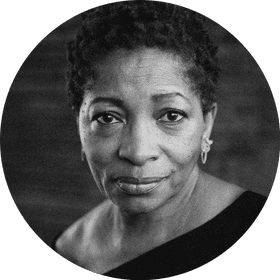 |
| John le Carré Illustration by T.A. |
John le Carré remembered by writers and friends: 'He always had a naughty twinkle in the eye'
Part Three
Margaret Atwood, John Banville, Tom Stoppard, Ralph Fiennes, John Boorman and more pay tribute to a master who transcended the limits of spy fiction
Monday 14 December 2020
Ralph Fiennes, actor
When I was approached by [producer] Simon Channing Williams in 2003 about making The Constant Gardener, I was already an enormous fan of le Carré’s books. I loved the world he created. And then I met the man, and he was so charming and generous of spirit and immediately available for conversation about the novel and the character. I must have fired all sorts of spurious questions at him but I just remember how he was very gregarious and excited about the project.
He had a beady eye on the script because I think he felt some of the previous adaptations of other books had not worked for him. The pinnacle had been the Alec Guinness Tinker Tailor series; Guinness came up a lot in conversation, and he had lots of funny anecdotes about him firing questions at him. It must have been flattering to feel the enthusiasm of actors coming to his characters. They appeal because they’re so rich and human and complex - great stuff to get your mind, soul and imagination around.

The characters of Smiley and Justin Quayle [Fiennes’s role in The Constant Gardener] intersected with David’s in that they were all understated and courageous men who chose to quietly pursue the truth. I loved David’s very strong sense of right and wrong, aligned with a wonderful sense of humanity’s complexity. His characters are rarely ciphers; they’re all wrestling their ambitions and frustrations and inadequacies and posturings.
David loved what Fernando Meirelles did with the film: faithful to the central axis of the book but giving it a dynamic, highly cinematic, kinetic spin which was very healthy for the way the le Carre film world was perceived at that time. It’s striking that Fernando, Tomas [Alfredson] and Susanne [Bier, who made The Night Manager] are all not English, and all brought a very different, strong interpretive element to the films.
For a while David and I were in touch and had a little correspondence. He always sent me a first edition of his new books. I was very sad to not be able to go to his birthday party last year; the final time I saw him was at a screening of Coup 53 [Fiennes’s documentary about the 1953 Iranian coup d’état] at the Renoir Curzon just over a year ago. That was very much his world, and it was so lovely to see he and Jane.
He had incredible energy and such a quick intellect. He was also a very funny raconteur who’d do all kinds of voices. People have been saying that he could have been an actor. In fact, he was a bit of an actor. He was one of those writers with a keen sense of the performative element in their works. And unlike some well-known authors, he wasn’t cagey or retentive. It was lovely to meet someone who was in the best sense enjoying their success. He had a wonderful confidence that wasn’t boastful but rather an excitement about life. That meant he was exacting when he needed to be, but also kind and supportive and honourable.
There are certain people you meet whose spirit seems something to aspire to even if one will never get there. He was one of them.
Bonnie Greer, playwright

My late father, Ben, was an autodidact, having grown up in rural Mississippi during the Depression, where education was segregated and brief for African American kids. He bought the Reader’s Digest to find out what books he should be reading and one of them was The Spy Who Came in from the Cold. This was the 1960s and I, like most Black kids at the time, was growing up not only in the civil rights movement and the beginning of its splintering, but at a time when US intervention was blatant and the norm. And we felt it was wrong; we knew everything was not as clear-cut as it was shown to us. When I read Le Carré, I came to see the ambiguity of life itself, its murkiness. I saw a guy who chose love and to take himself out of dishonour and lies. I have never forgotten the end of that novel. It taught me that life was complex and that even your country, and your friends, can be wrong.
Ian Rankin, author

John le Carré brought style and substance to the spy novel, detailing a world filled with morally compromised characters. He was more akin to Graham Greene than Ian Fleming, writing books where treachery and betrayal were never far away, and psychological drama trumped physical action. As the world changed and the cold war mutated, Le Carré focused on new threats and enemies who seemed not wholly unlike their predecessors. For me, A Perfect Spy is his greatest novel because it brings us closer to understanding the author’s own life, his father’s adventures as a conman engendering a lifelong interest in deceit and duplicity. Le Carré was our great chronicler of the geopolitical made personal. He shaped our understanding of a shadow world, one we are not supposed to know exists.
Kit de Waal, author
“On the day his destiny returned to claim him …” is the first Le Carré sentence I read, in Absolute Friends. I was trying to be a writer and I was daunted by it: so much “set up” in eight words, so much anticipation. I’ve read almost all of his novels now and remain in awe, more so after all these years and all those thousands of words. It’s not just that he leads you around with a trail of almost imperceptible breadcrumbs into worlds you never knew existed which feel utterly real and true, or even just the word-on-word craftsmanship and his mastery of the genre – it’s the characters: real, damaged, broken, the woolly patriotism and grey morals, addled by drink and ambition, lonely, heartsore. Not one word of excessive emotion in his books, and yet by the end, you’re wrung out by them, wiser, more understanding of the human condition. What a loss.
Holly Watt, author

When I was writing To the Lions, I struggled to come up with a title. My editor had one piece of advice: “Look at John le Carré’s titles and see how he does it. He’s the best.” Tinker Tailor Soldier Spy. The Little Drummer Girl. The Spy Who Came in from the Cold. The titles alone show his extraordinary way with words, but the novels themselves saw Le Carré display not only his sweeping knowledge of geopolitics, but also his remarkable understanding of humanity. He was a man of great compassion, who witnessed the best and very worst of people, and alchemised that insight into truly majestic novels. The world changed beyond recognition during his 89 years, but he changed with it, adapting seamlessly from the espionage of Call for the Dead to the drug-dealing chaos of The Night Manager. In Agent Running in the Field, published just over a year ago, he savaged Brexit and a “fucking Etonian narcissistic elitist”. For writers in the 21st century, my editor’s words will continue to resonate, but – sadly – with a slightly different phrasing: “He was the best.”
Adrian McKinty, author

I came to Le Carré in my late teens through A Murder of Quality, which has George Smiley working as a kind of private detective. I naively asked the Belfast central librarian if there were any more George Smiley mysteries. She suggested Tinker Tailor Soldier Spy and my world changed. I had never read a thriller like it: so rich in psychological detail, with the story propelled not by action but big brains attempting to outwit one another. Le Carré’s best books took you into a deliciously poisoned demimonde where damaged, jaded people fought one another with their wits rather than with pistols. Angry about the state of the world, he ground his axe fairly quietly until his last couple of books when despair about Trump and Brexit nearly, but not quite, overbalanced him. He was sui generis, a true master of the art.


No comments:
Post a Comment